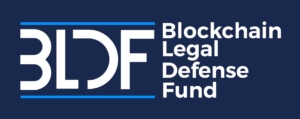The U.S. Securities and Exchange Commission (SEC) has ramped up its enforcement activity within the blockchain industry, recently targeting Immutable Pty Ltd, a prominent blockchain gaming developer. This move is part of a broader regulatory crackdown on cryptocurrency and blockchain projects, which have long operated in what some describe as a regulatory gray area.
Immutable Pty Ltd, known for its innovative blockchain-based gaming platform, received a Wells Notice from the SEC. A Wells Notice signals the SEC’s intent to recommend enforcement action, typically due to suspected violations of federal securities laws. The notice specifically addresses the company’s issuance and private sales of its IMX token, conducted during its launch in 2021.
What Is a Wells Notice and Its Implications?
A Wells Notice is not a final judgment or even a formal accusation of wrongdoing. Instead, it serves as a precursor to potential enforcement actions, allowing the recipient to respond before formal charges are filed. Companies targeted by Wells Notices are often invited to provide a written statement, known as a Wells Submission, to argue against the SEC’s planned action or to explain their perspective.
In the case of Immutable, the SEC appears to be scrutinizing whether the IMX token qualifies as a security under the Howey Test. This test, established by a 1946 Supreme Court ruling, determines whether a transaction involves an “investment contract” based on criteria like the expectation of profits derived from the efforts of others.
If the SEC proceeds with enforcement, Immutable could face significant penalties, including fines and restrictions on token sales. Such actions could also have broader implications for other blockchain gaming companies that utilize similar tokenomics.
Immutable Pty Ltd’s Position
Immutable has publicly stated its intention to contest the Wells Notice. The company argues that its IMX token serves as a functional asset integral to its gaming platform rather than an investment vehicle. According to Immutable, IMX is used for governance, staking, and facilitating transactions within its ecosystem.
The company further asserts that it took proactive measures to comply with applicable laws during the token’s launch, including consulting with legal experts and adhering to best practices for transparency. Immutable’s leadership has emphasized its commitment to fostering innovation within regulatory frameworks, describing the SEC’s actions as a potential hindrance to the growth of blockchain-based industries.
The Broader Context of SEC Scrutiny
Immutable’s case is not an isolated incident. The SEC has increased its enforcement actions against blockchain and cryptocurrency projects over the past two years. High-profile cases include actions against Ripple Labs over its XRP token and Coinbase for allegedly operating an unregistered securities exchange.
The SEC’s more aggressive stance stems from concerns about investor protection in the rapidly evolving crypto space. While some argue that regulatory oversight is necessary to weed out fraudulent projects, critics contend that the SEC’s actions often lack clarity and disproportionately stifle innovation.
For blockchain gaming, the stakes are particularly high. The sector has witnessed explosive growth, driven by its integration of decentralized technologies, NFTs, and play-to-earn models. However, the regulatory ambiguity surrounding these innovations makes them vulnerable to enforcement actions, potentially deterring investment and slowing adoption.
The Industry’s Reaction
The Wells Notice against Immutable has sparked debate within the blockchain community. Advocates for blockchain gaming argue that the SEC’s approach fails to account for the unique nature of tokens designed for utility rather than speculation. They call for clearer guidelines tailored to the distinct characteristics of blockchain technology.
On the other hand, skeptics of the blockchain gaming model question how much these tokens genuinely prioritize utility over financial gains. Some suggest that projects should proactively engage with regulators to establish compliance early in their development, thereby minimizing the risk of enforcement actions.
The outcome of Immutable’s case could set important precedents for the blockchain gaming industry. If the SEC succeeds in classifying IMX as a security, other projects may need to reconsider their token structures or face similar scrutiny. This could lead to increased legal costs and operational hurdles for blockchain developers.
For investors, the regulatory crackdown introduces additional risks. While enforcement actions aim to protect investors, they also create uncertainty, potentially impacting token prices and market confidence.
Navigating the Road Ahead
Immutable’s response to the Wells Notice will likely involve a combination of legal defense and public relations efforts. The company may seek to demonstrate that its operations align with existing laws while advocating for more nuanced regulatory approaches. Simultaneously, it must reassure its user base and partners of its commitment to innovation and compliance.
The case underscores the importance of proactive compliance for the blockchain industry at large. Companies must stay informed about evolving regulations, engage with legal experts, and adopt transparent practices to navigate an increasingly regulated landscape.
The SEC’s Wells Notice to Immutable Pty Ltd highlights the growing regulatory scrutiny faced by blockchain and cryptocurrency projects. While the outcome remains uncertain, this case reminds us of the importance of compliance and the need for clear, balanced regulations that support innovation without compromising investor protection.












